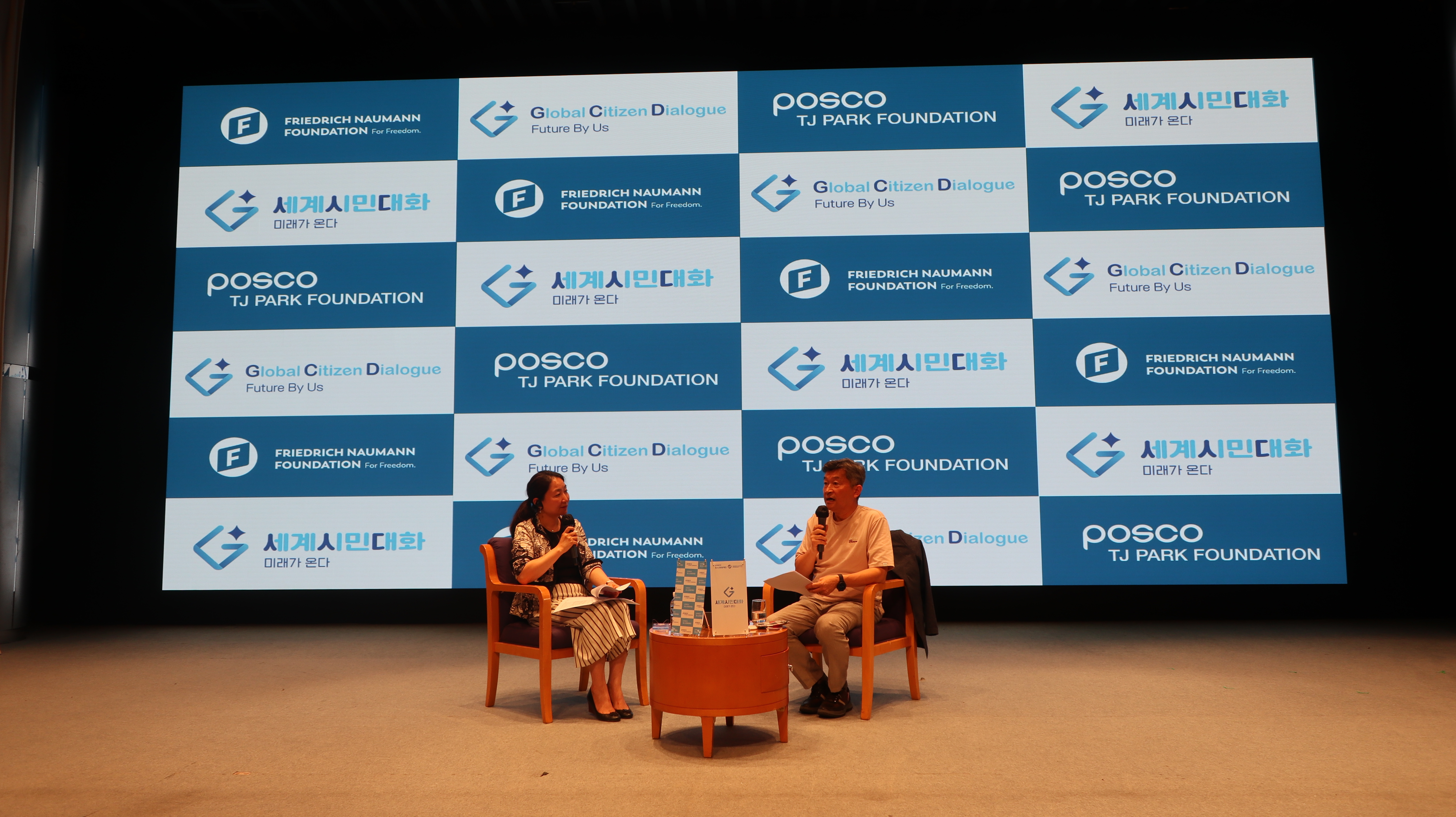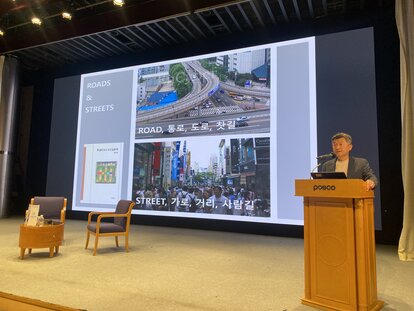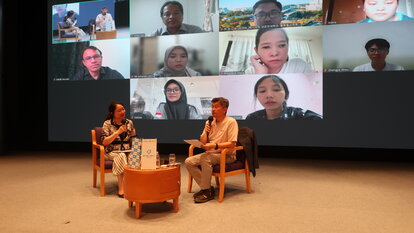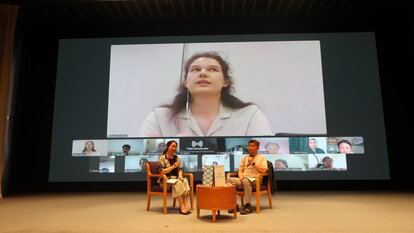Global Citizen Dialogue
Sustainable Mobility and Accessible Cities

In the series “Global Citizen Dialogue: Sustainable Cities, Inclusive Futures,” the second seminar was held on July 25, 2024, at the POSCO Center in Seoul.
© POSCO TJ Park FoundationIn the series “Global Citizen Dialogue: Sustainable Cities, Inclusive Futures,” the second seminar was held on July 25, 2024, at the POSCO Center in Seoul. The joint event by Friedrich Naumann Foundation Korea and POSCO TJ Park Foundation was concerned with the topic of “Sustainable Mobility and Accessible Cities,” exploring strategies for a sustainable transformation in public transportation infrastructure.
The Global Citizen Dialogue (GCD) is a collaborative project of both foundations which aims to nurture active future leaders and to discuss various social issues including digital transformation, future space and sustainability. Since 2023, GCD series has been addressing United Nations’ Sustainable Development Goals (SDGs) and this year’s program is aimed at promoting engagement with SDG Goal 11, “Sustainable Cities and Communities.” This event was conducted via Zoom, allowing students from 15 countries, including Indonesia, India and the Philippines, to participate, thus facilitating the international exchange required for the pursuit of these global goals. The seminar, with 161 students registered, constituted an opportunity for participants to learn about the future of transportation, address their questions, and share their insights and hopes for the improvement of urban accessibility.
The event was opened by Oh Min-jung, Professor at Korea National University of Education, who guided the audience through the program, encouraging the participants’ lively engagement. Oh highlighted the interdependence of places and people influencing and changing each other, thus emphasizing the importance of civil-society engagement in a successful strategy towards sustainable and accessible urban spaces.

Jeong Seok, Professor at the University of Seoul
© POSCO TJ Park FoundationThe program was joined by Jeong Seok, Professor at the University of Seoul, as an expert. He gave an insightful presentation on sustainable mobility and accessible cities, accentuating the opportunities that lie within the so-called BBW strategy - the switch from cars as the main vehicle of transportation towards buses, bikes, and walking. Jeong criticized the historical road design of Korea, which is optimized for the convenience of cars, and contrasted different road designs in countries all around the world, displaying the benefits of infrastructure prioritizing public transportation and its convenience for pedestrians.
After showcasing international examples of sustainable and inclusive transportation infrastructure, Jeong resumed by introducing recent transformations in Korea, such as a trend towards more pedestrian-friendly cities with car-free roads and transportation infrastructure that includes free public transportation as well as an increasing availability of bike lanes. He then went on to stress the need for a reimagination of cities, as many less developed areas still lack efficient public transport. Jeong concluded his presentation by giving strategic recommendations for a shift towards sustainable mobility, underscoring the effectiveness of public campaigns inviting citizens to experience public transportation themselves.
The participants finally entered a lively Q&A session with Professor Jeong, raising questions regarding strategies for successful implementation of sustainable mobility models and the promotion of their utilization among citizens. Of special interest was strategic advice for the cases of developing countries, where efficient public transportation is not yet broadly available and further development is faced with the issue of lacking financial capacity. They also accentuated the issue of adaptiveness, as accessible cities should provide transportation for all and assistance services for those who need them, and shared their visions for future mobility, including adaptive cycling for the visually impaired.
Jeong used this chance to address the participants concerns and to highlight an approach centered on the benefits of the people through high efficiency, financial profitability, and convenience for everyone, including those whose needs are not traditionally prioritized in public infrastructure.
The seminar posed a valuable platform for interactive learning and enhanced the participants understanding of the need for appropriate legal frameworks and transformation processes that include stakeholders to ensure sustainable improvements in the sustainability and accessibility of urban transportation infrastructures.
*Elisabeth Gläser is currently interning at the Friedrich Naumann Foundation for Freedom Korea office in Seoul.


